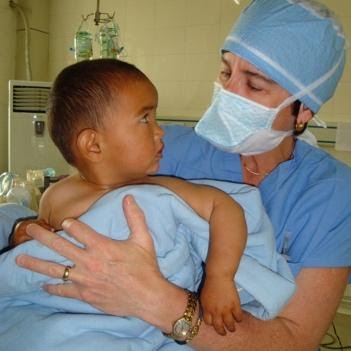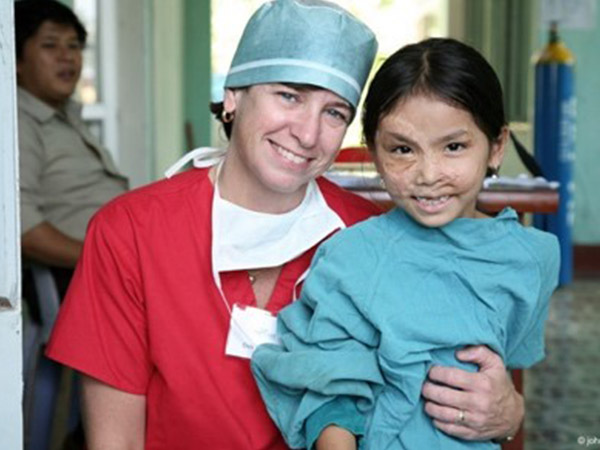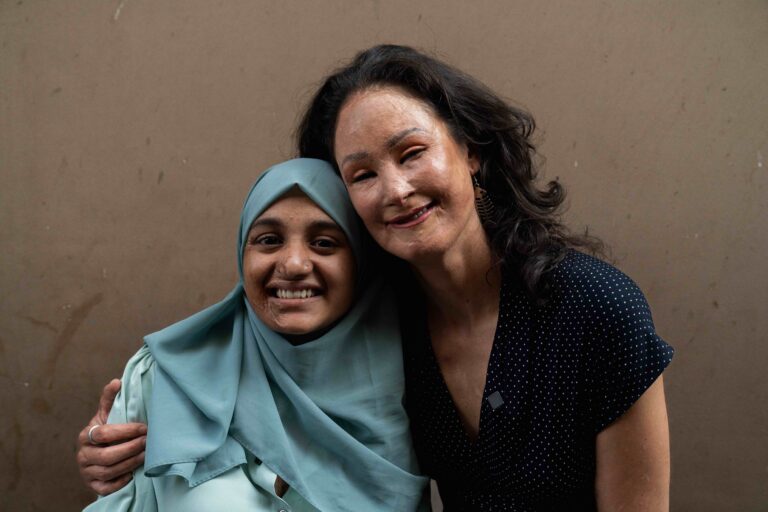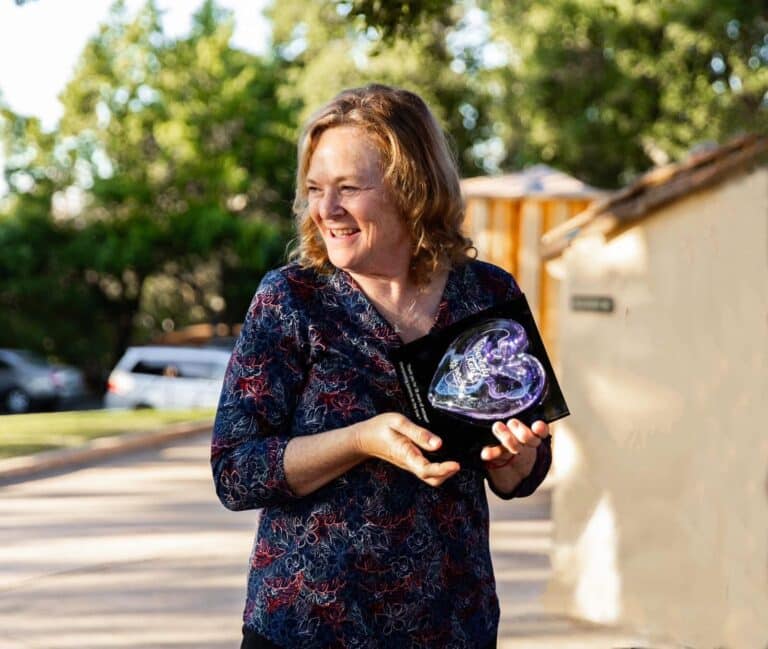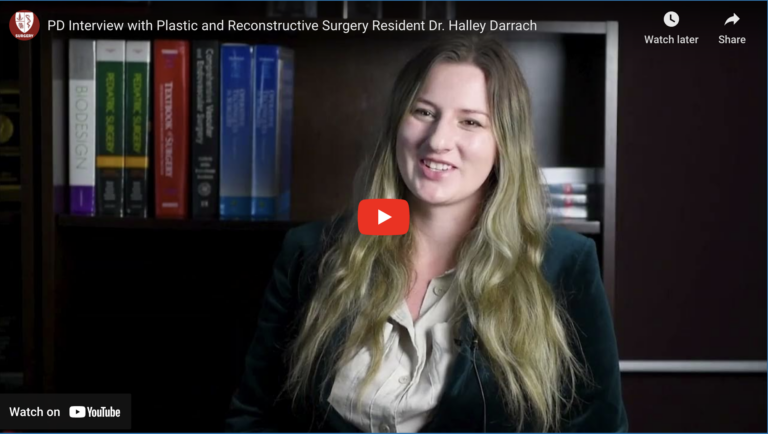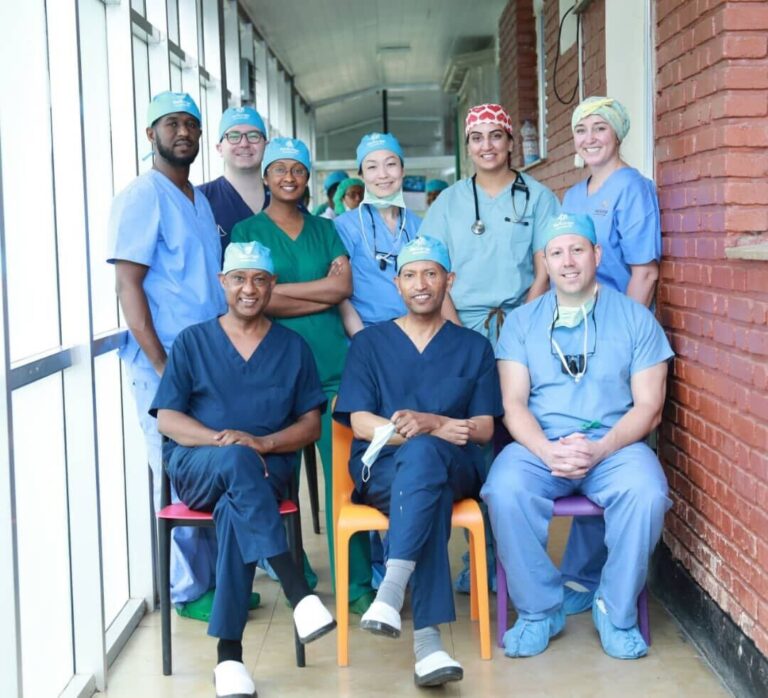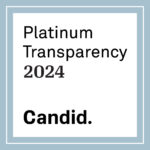How did you hear about ReSurge and get involved?
One of the University of Wisconsin pediatric neurosurgeons I often worked with, asked me to join him on a volunteer neurosurgical mission trip at the Cure Hospital in Mbale, Uganda. A colleague of mine, and ReSurge volunteer, Les Proctor MD, suggested I join him to gain some experience practicing anesthesia in a LMIC prior to this. I accompanied him on a Plastic Surgery Surgical mission in Leon Nicaragua in 2003 The following year, I accompanied our neurosurgeon on the trip to Mbale, Uganda. I was “hooked” after these trips.
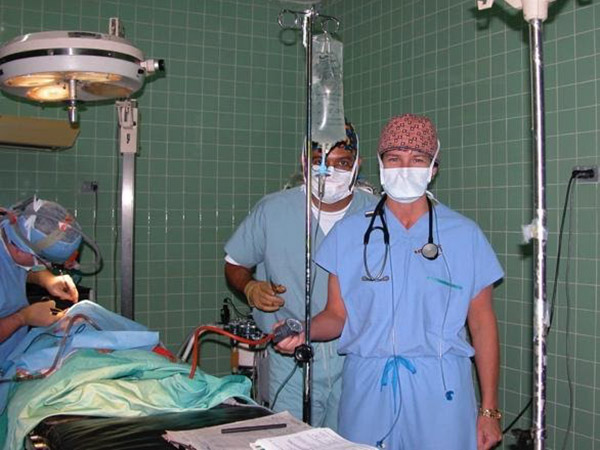
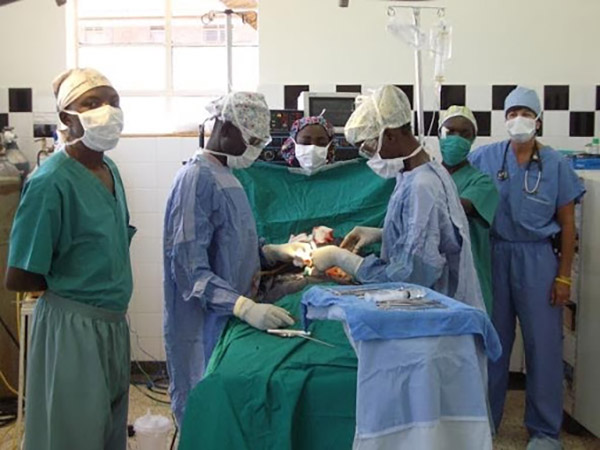
I submitted my application in 2005, and shortly after, I was contacted by Interplast and asked to join a trip to Quang Ngai, Vietnam. I was told that one of the anesthesiologists who would also be on the trip had specifically requested me to join. This was Nancy France M.D. Nancy had practiced Anesthesiology at the University of Wisconsin, during the time my father (an anesthesiologist) was also on the faculty, and she and my father became good friends.
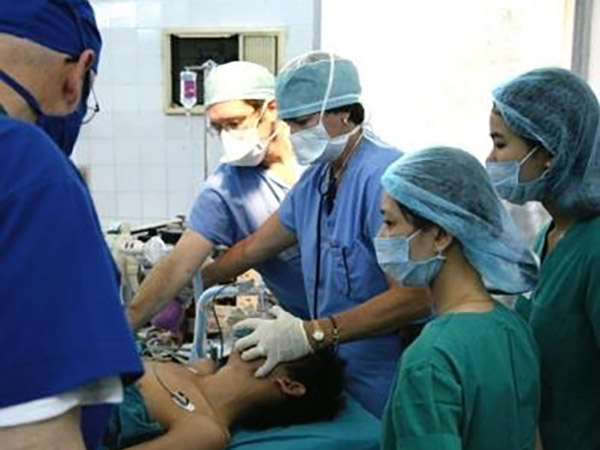
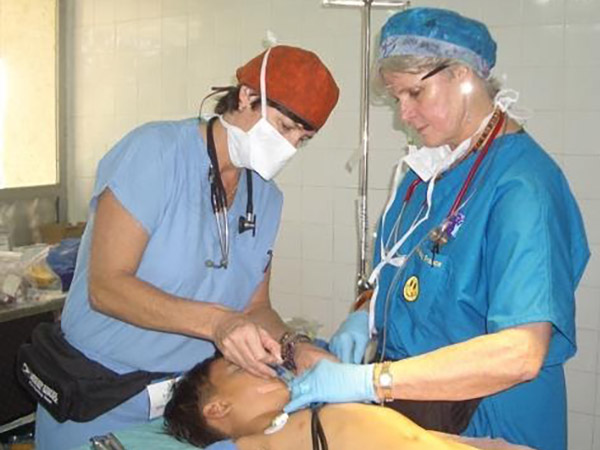
What was your most memorable experience or trip?
Wow, that is a hard one to answer. Over the past fifteen years, I have participated in 40 overseas Surgical Mission and Visiting Educator trips in 22 different countries, including trips with ReSurge International, University of Wisconsin Departments of Plastic Surgery, ENT and Neurosurgery, Sharing Resources Worldwide (orthopedics), and Operation Smile.
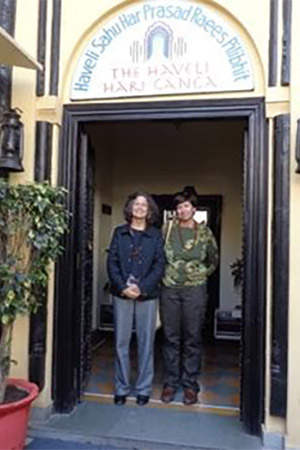
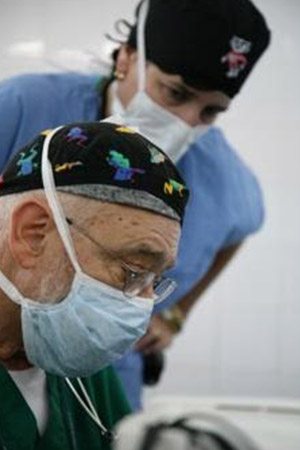
I have had wonderful experiences and memories from ALL of these trips.
But here are two stories of children I have cared for on ReSurge surgical missions, that I will never forget:
Gian was 5 when she traveled with her mother for two days from the foothills of Northern Vietnam to the town of Quang Ngai where our volunteer team was working in 2006. She was burned in a fire when she was about a year old and had severe facial burns. She had trouble opening one eye, and could not smile. I’ve provided anesthesia care for her twice over a period of 3 years. Following our last mission, she’s was a happy, smiling eight-year-old child. She would be about 20 years old today.
Nisha was 11 when our team first encountered her in Jalandhar, India, 2007. She had severe burns over her chest, neck and face from hot oil, which had splashed over her when she was ten years old. Her neck contractures were so severe that her chin and lower jaw were held by contracture scars to her chest. She had essentially no neck flexion or extension. She had limited forward vision, difficulty talking, and was fed liquids through a straw, as she could not move her mouth. She was embarrassed to be seen in public.
Our team has provided her multiple reconstructive surgeries. I had participated in her care for the first, and two subsequent surgeries. Securing the airway was a major concern with the first procedure. After a focused airway exam, we determined that mask ventilation would probably be difficult, however we thought we would be able to seat an LMA (laryngeal mask airway). An LMA would not be appropriate for the entire procedure, which we anticipated, would take 3-4 hours with risk of excessive blood loss. After much discussion and planning with the surgeons, we secured IV access, then following IV induction, placed an LMA. The surgeon then released the anterior neck contractures (avoiding major vessels), allowing neck mobility. She was then able to be intubated with placement of an endotracheal tube so the surgery could be completed.
Nisha was 17 when she assisted with patient preparation during the clinic day of my last team trip visit in 2013. Although she still hopes for more corrective surgery, she now feels comfortable in public, and continues to work in the local plastic surgeon’s clinic in Dehradun.
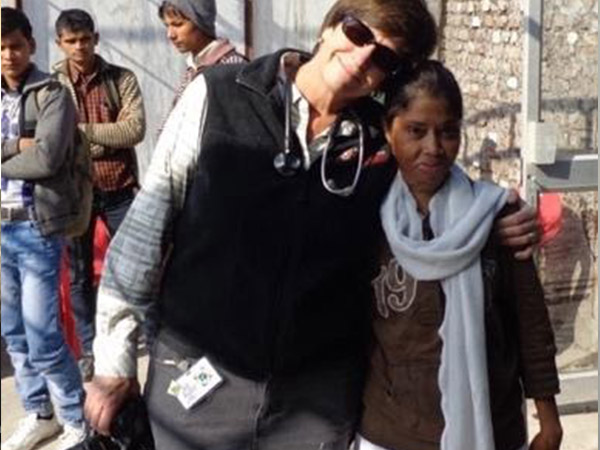
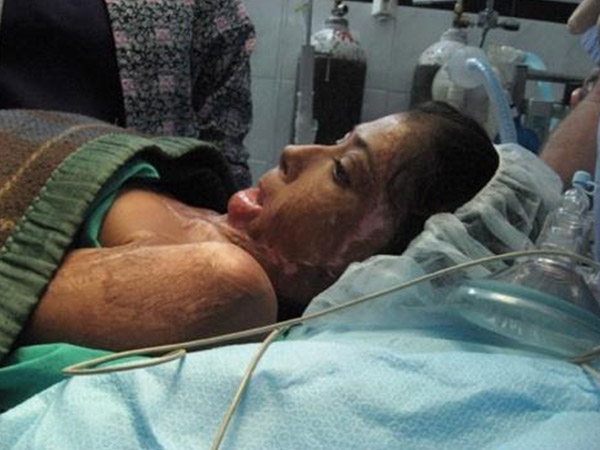
Besides volunteering on trips, how else have you been involved with ReSurge?
I currently chair the ReSurge Anesthesia Committee, and am a member of the Medical Services Committee. I have drafted the Anesthesia Milestones for our anesthesia partners abroad.
How would you describe ReSurge to someone who has never heard of us?
ReSurge is a high-performing, successful nonprofit organization. They have committed and strong leadership, and are passionate about their volunteer base. There is great collaboration of self-organizing multidisciplinary surgical and educational teams. They are always focused on their mission which is to provide reconstructive surgical care and build surgical capacity in developing countries.
How has ReSurge changed since you started volunteering?
ReSurge has grown significantly. They have added several new corporate and academic partners. Although there are not as many “team trips” as in the earlier Interplast days, there are now many more visiting educator trips, focusing on specific surgical procedures and intra-operative anesthesia care. There are now organized virtual international educational didactic sessions, and educational sponsorship of several foreign surgical partners. ReSurge has also increased administrative staff, necessary to organize these increased educational trips and educational components.
Have you been on the frontlines of COVID-19? If so, what has that been like for you?
Working as an anesthesiologist at a large academic center, I have been on the frontlines of our COVID-19 teams. I have participated on the Intubation teams, and have become very adept in donning and doffing a PAPR (Powered Air-Purifying Respirator) suit. The most protective of personal protective gear.
When COVID-19 cases were recognized and spiking in late March, all elective surgeries at our institution were halted. Most administrators and medical service personnel worked from home or were on furlough. The Department of Anesthesiologist physicians and anesthetists all remained at work covering intubations, and the ICUs. We were put on 5 day 12-hr shifts covering 24/7.
Initially I was so extremely cautious, not to touch anything without gloves, washing hands frequently, and never removing a mask. I was paranoid I would bring home COVID to family members, and initially isolated in a separate room at home following shifts. As we learned more about the disease, knowing that most spread was airborne, I began to feel safe around family, as long as I remained in a mask at all times when out of the house, and utilized all appropriate PPE precautions when actually caring for a COVID-positive or status unknown patient.
What’s something that might surprise people about you? (I.e. hidden talents, unique experiences, etc.)
I own a Harley Davidson motorcycle.
I have hiked the Grand Canyon Rim to Rim.
I have visited all of our U.S. National Parks (minus American Samoa-still plan to get there)
I’ve crawled through the Cu Chi tunnels, hike to Tigers Nest and the roof of the Potala Palace, and spent a few afternoons in the Beatles Ashram in Rishikesh.
I have visited 105 different countries. And hope to see more after COVID days…..
What piece of advice would you share with a volunteer who has never been on a trip with ReSurge before?
When reflecting on all of the missions I have participated in, I realize that humanitarian anesthesia has not only become a part of my professional career, but a part of my personal identity as well. I hope to be able to influence other anesthesia residents and providers to get involved. Find a mentor in your field who has participated in volunteer medical missions abroad, and ask them about their experiences and what advice they have to offer. Understand your role and responsibilities for a trip prior to travel. Read about the Country, people, cultural norms, climate, political stability and travel advisories in advance. Know what equipment, supplies and medications are available at the site, and what you should expect to bring to provide safe care. Visit a travel clinic to get information on necessary vaccinations and travel medications you may need depending where you are traveling to, and pack any daily medications you routinely take. Most importantly, develop strong friendships with your partnering colleagues in the host countries. You will learn as much from them as they from you.
I think, probably the most rewarding experiences one can receive are those obtained when you have the ability to provide knowledge, skills and work in your field of expertise, to those more unfortunate, who would otherwise not receive this. I highly recommend all to get involved.
